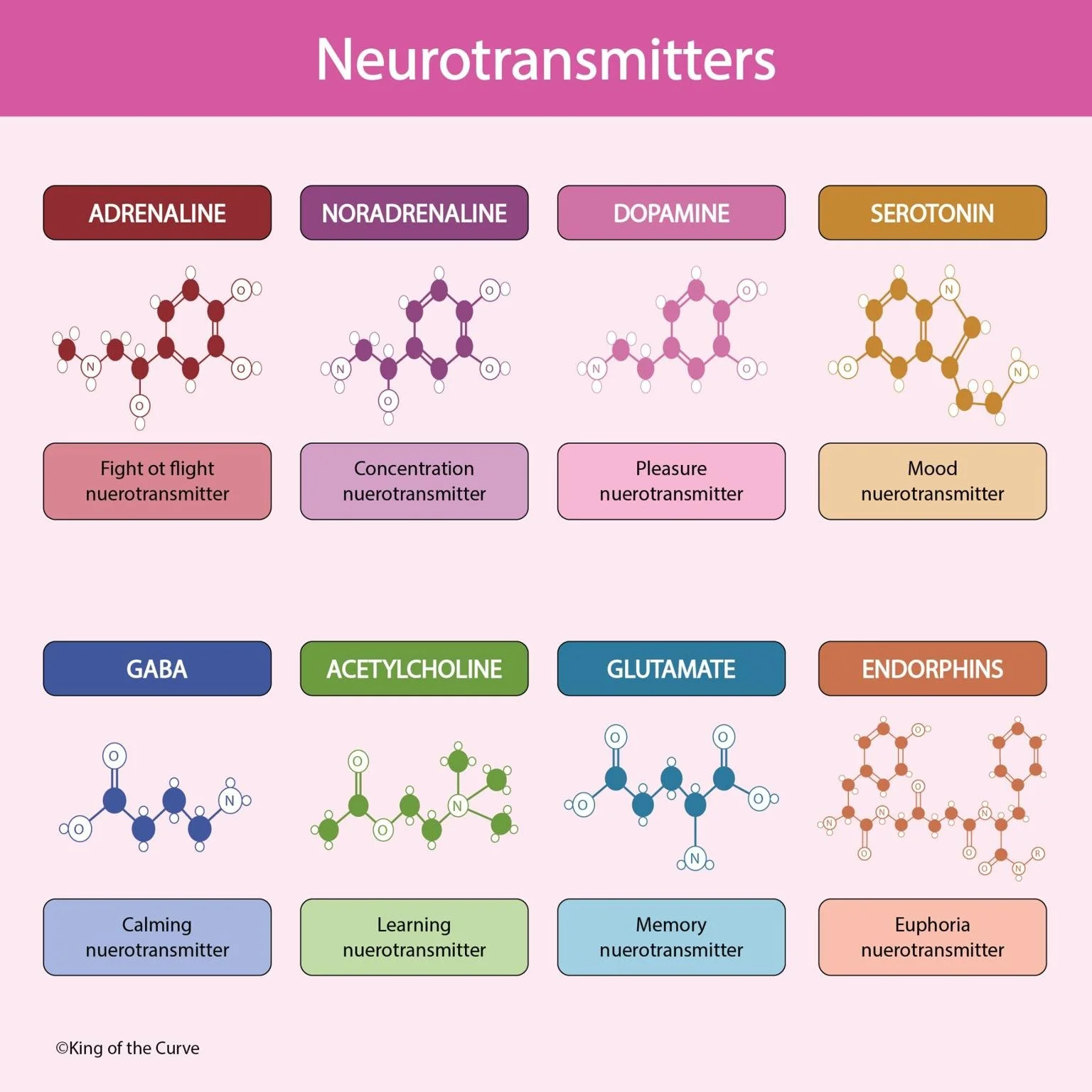🧠 Neurotransmitters: The Chemical Messengers of the Nervous System
Neurotransmitters are specialized molecules that serve as the body’s internal communication system, transmitting signals between neurons across synapses. They regulate essential processes like mood, movement, memory, and response to stress functions tested extensively on exams like the MCAT, NCLEX, and USMLE Step 1. Understanding these chemical messengers helps students grasp how the brain and nervous system coordinate behavior and physiology.
⚡ How Neurotransmitters Work
Neurons send messages through a complex electrochemical process. When an electrical impulse (action potential) reaches the axon terminal, it triggers the release of neurotransmitters into the synaptic cleft. These chemicals bind to receptors on the target neuron, either exciting or inhibiting further signaling. Each neurotransmitter has a unique function and specific receptor type, influencing everything from focus to emotional stability.
🔍 Major Types of Neurotransmitters
| Neurotransmitter | Primary Function | Key Role |
|---|---|---|
| Adrenaline (Epinephrine) | Fight or flight response | Increases heart rate and energy availability |
| Noradrenaline (Norepinephrine) | Concentration | Boosts alertness and mental focus |
| Dopamine | Pleasure and reward | Regulates motivation and motor control |
| Serotonin | Mood regulation | Impacts happiness, sleep, and digestion |
| GABA (Gamma-Aminobutyric Acid) | Inhibitory control | Calms neural activity, reducing anxiety |
| Acetylcholine | Learning and memory | Facilitates muscle contraction and cognition |
| Glutamate | Excitatory signaling | Strengthens memory and neural connections |
| Endorphins | Euphoria and pain relief | Act as natural painkillers and mood enhancers |
🧩 Neurotransmitters in Action
Neurotransmitters constantly interact to maintain homeostasis within the brain. For instance, dopamine and serotonin work together to balance motivation and emotional stability, while GABA counteracts glutamate to prevent overstimulation. When this balance is disrupted, neural communication can falter leading to mental health and neurological disorders.
⚕️ Clinical Relevance and Disorders
Neurotransmitter imbalances are implicated in a range of conditions. Low serotonin is linked to depression and anxiety; dopamine dysregulation contributes to schizophrenia and Parkinson’s disease; acetylcholine loss is associated with Alzheimer’s. Medications such as SSRIs, dopamine agonists, and acetylcholinesterase inhibitors help restore balance by targeting specific neurotransmitter pathways. Understanding these mechanisms is critical for future clinicians preparing for medical and nursing exams.
Moreover, lifestyle factors including diet, sleep, and stress — also influence neurotransmitter production. Exercise increases endorphins and dopamine, promoting improved mood and focus. These real-world connections remind students that neurobiology isn’t just about memorization; it’s about understanding how the brain adapts, heals, and communicates.
🧠 Final Takeaway
Neurotransmitters are at the heart of every thought, movement, and emotion. By mastering how they function, interact, and impact mental health, students can strengthen their foundation in neuroscience, psychology, and physiology all key areas for exam success and lifelong learning.
Frequently Asked Questions (FAQs)
-
Aim for 4-6 focused hours, ensuring you incorporate breaks to avoid burnout.
-
Practice mindfulness techniques, take practice exams under realistic conditions, and maintain a balanced lifestyle.
-
Set short-term goals, seek support from mentors, and reward yourself for small achievements.
-
Regular exercise improves focus, reduces stress, and enhances overall mental clarity.
-
KOTC offers personalized learning tools, gamification features, and adaptive question banks to help students stay on track without burnout.


